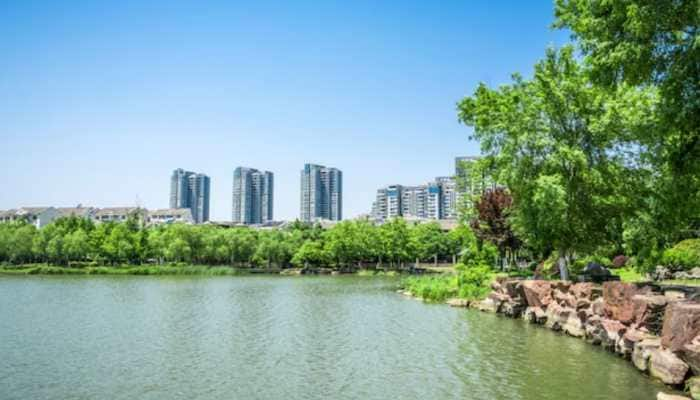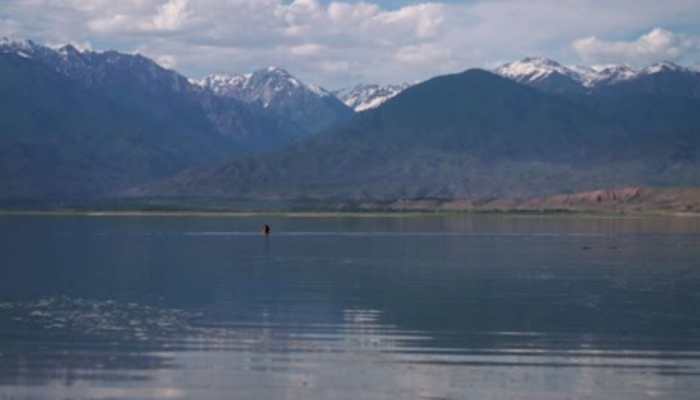States too share 'responsibility' for security in border areas: Amit Shah at Eastern Zonal Council meet
Issues such as water-sharing among states were also discussed at the Eastern Zonal Council meeting, which was attended by West Bengal Chief Minister Mamata Banerjee, her Jharkhand counterpart Hemant Soren, Bihar deputy CM Tejashwi Yadav and Odisha minister Pradeep Amat.
Trending Photos
)
Kolkata: Union Home Minister Amit Shah, at a meeting of the Eastern Zonal Council (EZC) on Saturday, indicated to chief ministers that the states too share responsibility along with the BSF for security in India's border areas, officials said. Illegal infiltration, trans-border smuggling and the vulnerable India-Bangladesh boundary were among subjects deliberated upon at the 25th EZC meeting, chaired by Shah, at the West Bengal secretariat near here, a senior official said. Issues such as water-sharing among states were also discussed at the meeting, which was attended by West Bengal Chief Minister Mamata Banerjee, her Jharkhand counterpart Hemant Soren, Bihar deputy CM Tejashwi Yadav and Odisha minister Pradeep Amat, an official said. The role of the Border Security Force (BSF) was discussed, in light of the increase in the operational area of the border force earlier this year. In response, according to sources, Shah is believed to have indicated that the state governments too have a role to play in border security.
The BSF is not the only one responsible for stopping smuggling across the international border. The state governments also have the responsibility to prevent crime along the border. Under any circumstance, infiltration will have to be stopped, Shah is believed to have said at the meeting.
Shah instructed the BSF to be "flexible" and cooperate with the states, when the West Bengal chief minister complained that the security forces wanted excessive land for fencing and setting up sector offices along the boundaries of different states, the official said.
The meeting also discussed the resurgence of Maoist activities in Jharkhand, Odisha and West Bengal. It was decided that states and the Centre will pool real-time information on Maoist activities in the red zone in order to coordinate steps to neutralise the movement, officials said.
Chaired the 25th Eastern Zonal Council meeting today in Kolkata.
In the last 8 years, under PM @narendramodi Ji’s leadership, more than 1,000 issues were discussed in the Zonal Councils meeting and 93% of them were resolved with mutual consent in a positive atmosphere. pic.twitter.com/nNgkopz6Kc— Amit Shah (@AmitShah) December 17, 2022
Banerjee also highlighted that arms are being smuggled into West Bengal from neighbouring states and coordinated steps are needed to check this menace.
At the meeting, when a senior official of the Railways Board pointed out that several projects are stuck in the four states due to illegal encroachment of lands, Shah advised eviction of encroachments from railway land.
Banerjee advised that land acquisition should be accompanied by adequate rehabilitation and compensation measures.
Discussions were also held on long-standing water disputes among these states, the official said, adding that Banerjee demanded a master-plan for a permanent solution to erosion of Ganga.
Shah, who is the chairman of the council, was accompanied by five home ministry officials including Union Home Secretary Ajay Bhalla, at the meeting that began around 11 am and lasted for a little over two hours.
The overall development of the eastern region is Modi govt’s priority. Our govt has always given thrust towards developing the infrastructure in the eastern region. Also, a major share in PM @NarendraModi's visionary Gati Shakti Scheme has been given to this region. pic.twitter.com/FoVj38Tfda — Amit Shah (@AmitShah) December 17, 2022
Bihar Chief Minister Nitish Kumar and Odisha's Naveen Patnaik skipped Saturday's session.
Shah urged CMs to ensure the creation of the National Narcotics Coordination Portal (NCORD) system at district-level and hold regular meetings to fight narcotics, the official said.
The Union home minister later met Banerjee at her chamber on the 14th floor of the secretariat, he said.
Shah left for Shillong soon after the meeting, the official added.
Meanwhile, Shah has asked West Bengal BJP leaders to strengthen the party at the grassroots level in the state ahead of the panchayat polls, a senior party leader said on Saturday.
Stay informed on all the latest news, real-time breaking news updates, and follow all the important headlines in india news and world News on Zee News.
Live Tv







)
)
)
)
)
)
)
)
)
)
